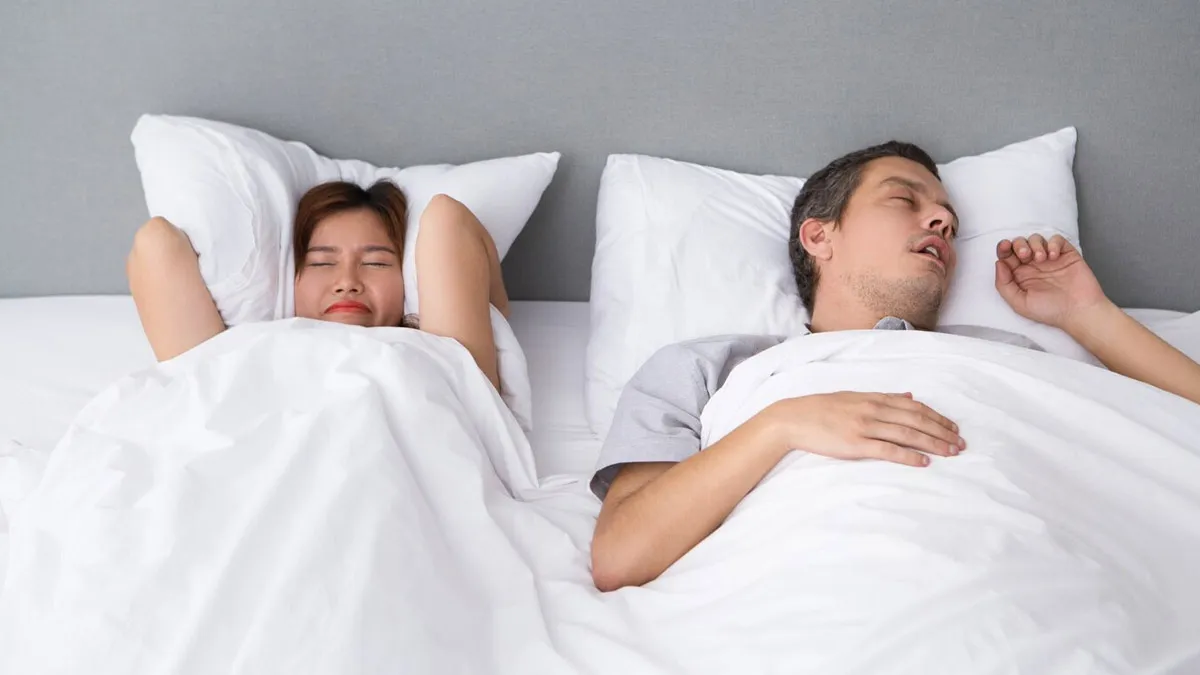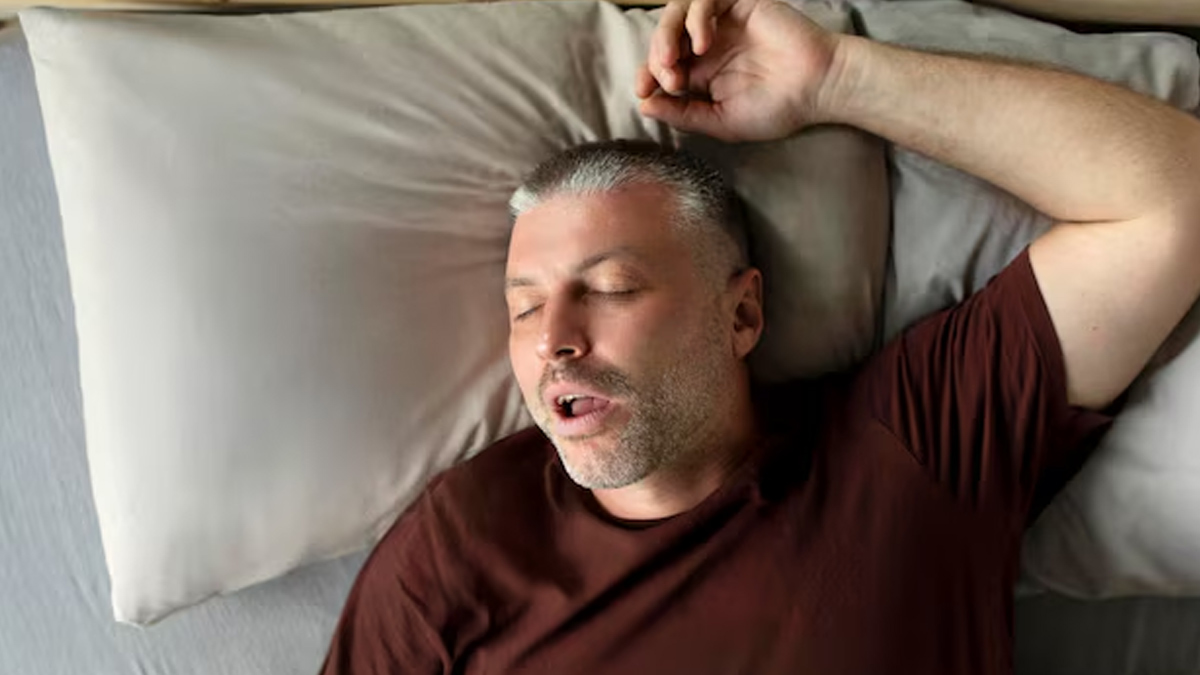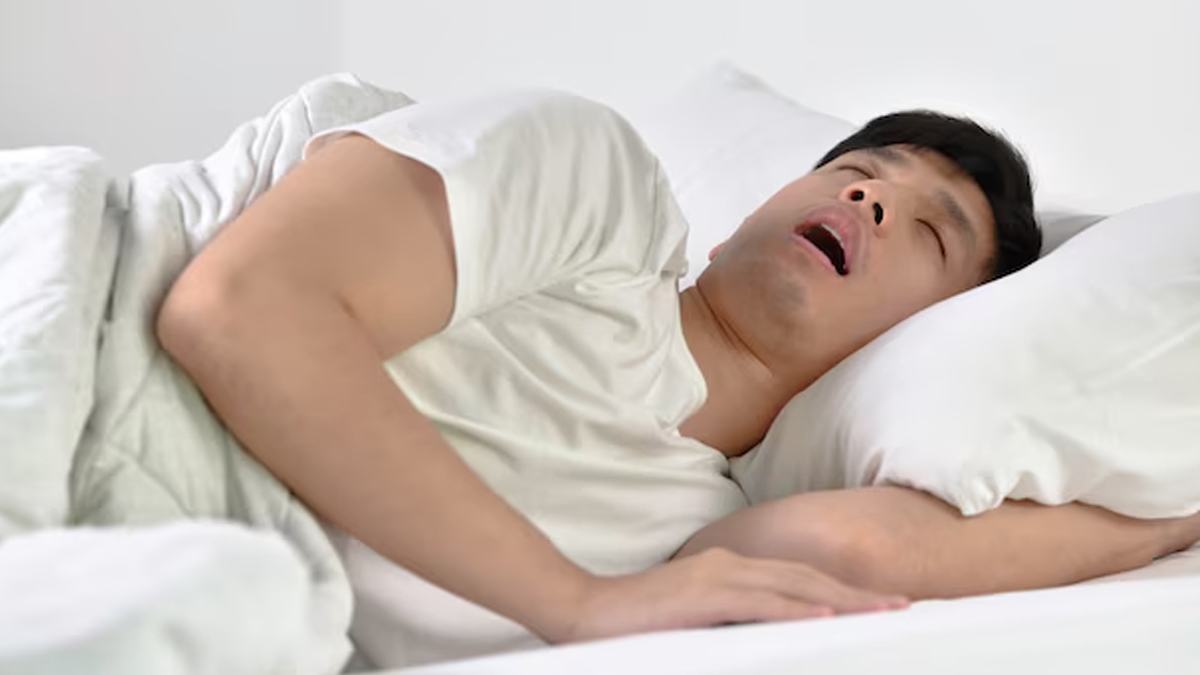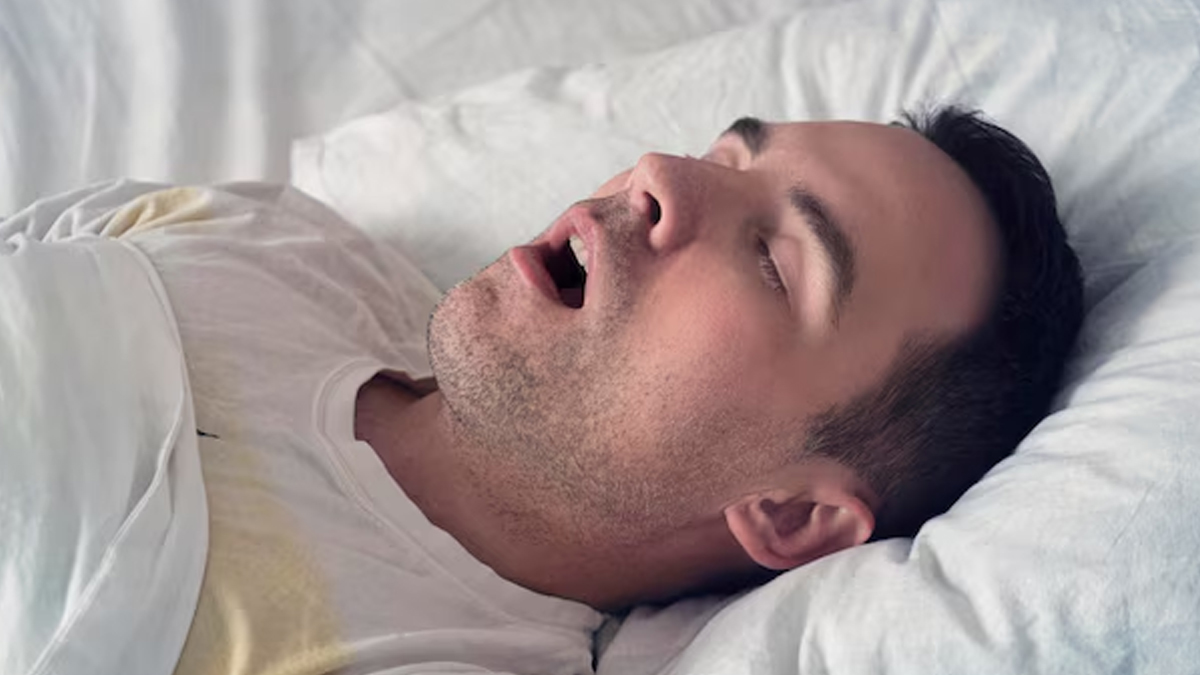
Snoring is extremely common. About 40-50% of adults snore at some point in their lives, and you may be one of them. While snoring once in a while is okay and not a cause for concern, frequent snoring should be consulted with a doctor, as it can indicate an underlying condition. Interestingly, some experts believe that your sleeping position can influence whether you snore or not. To confirm the same, the OnlyMyHealth team interacted with Dr Waseem Ud Din, Consultant Pulmonologist, Ujala Cygnus Group of Hospitals, Srinagar, and here’s what he told us.
Table of Content:-
Also Read: Is It Safe to Use Mouth Tape while Sleeping? What You Need to Know
Why Do People Snore And When Is It Concerning?

Snoring is basically a sound, often noisy, that can turn a peaceful night into a restless one — for you or the person next to you.
It happens when the airflow through your mouth or nose gets partially blocked during sleep, causing the soft tissues in your throat to vibrate. While it might seem harmless, snoring can sometimes point to deeper health issues that shouldn’t be ignored.
"Snoring may indicate a more serious condition like Obstructive Sleep Apnoea (OSA) if it's loud, frequent, and accompanied by pauses in breathing, gasping, or choking during sleep," Dr Waseem said.
He shared other warning signs which include excessive daytime sleepiness, difficulty concentrating, and morning headaches.
"If these symptoms are present, it's important to consult a healthcare provider for evaluation," the doctor emphasised.
How Sleep Positions Influence Whether Or Not You Snore

According to Dr Waseem, changing sleep positions can significantly improve snoring habits and reduce symptoms of sleep apnoea.
A study published in JMIR Formative Research found that sleeping with the upper body slightly elevated can reduce snoring and improve sleep quality. Over eight weeks, 25 self-reported snorers tracked their sleep at home and experienced a 7% drop in snoring, fewer nighttime awakenings, and an increase in deep sleep. Participants also reported feeling more rested, suggesting that this simple, non-invasive adjustment could offer real benefits for better sleep.
Some of the sleep positions that can help reduce snoring include:
Sleeping on your side: “Sleeping on your side, specifically the left side, can be very helpful in reducing snoring,” said Dr Waseem, explaining that sleeping on your side can help keep your airway open, as the tongue and soft tissue do not collapse into your throat as they do while sleeping on your back. “This is particularly important since sleeping on your back can cause more collapse of the airway by placing the tongue and soft tissue back towards the throat.”
Sleeping on your back: According to the doctor, sleeping on your back can worsen snoring because gravity causes the tongue and soft palate to fall backward, narrowing the airway. “This partial blockage increases the likelihood of vibrations during breathing, leading to snoring. For individuals with conditions like Obstructive Sleep Apnoea (OSA), back sleeping can significantly exacerbate symptoms.”
Also Read: Child Snoring at Night? Here’s What Parents Need to Know About Hidden Health Risks
Are There Specific Pillows Or Sleep Aids That Can Help Reduce Snoring?

Specialised sleep aids like body pillows, wedge pillows, and anti-snore pillows are designed to promote side sleeping and keep the head properly elevated. These pillows help maintain neck alignment and reduce airway obstruction. Some high-tech versions can even detect snoring and automatically adjust your head position to improve airflow and reduce noise.
Conclusion
Snoring is something many of us deal with, and while it’s often harmless, it can sometimes point to bigger health issues. The good news is that small changes, like sleeping on your side and using the right pillows to keep your head supported, can really help open up your airways and make your sleep more restful. If your snoring is loud or comes with other problems like feeling tired during the day or having trouble breathing at night, it’s a good idea to talk to a doctor. With a few simple steps and the right advice, you can breathe easier and wake up feeling more refreshed.
Also watch this video
How we keep this article up to date:
We work with experts and keep a close eye on the latest in health and wellness. Whenever there is a new research or helpful information, we update our articles with accurate and useful advice.
Current Version